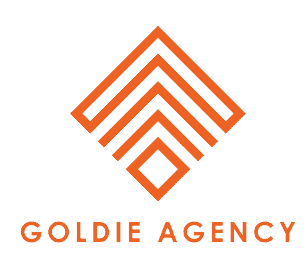In the digital age, a strong online presence is essential for any website seeking to attract visitors. Search Engine Optimization (SEO) is fundamental to this endeavor, and a thorough understanding of the intricacies of meta and title tags can greatly enhance a site’s visibility. This article aims to explore the concept of SEO, its significance, and the influence of meta and title tags on search engine rankings. It will highlight common mistakes and provide practical optimization tips to ensure that your site distinguishes itself in search results. Prepare to enhance your SEO strategy.
What Is Search Engine Optimization (SEO)?
Search Engine Optimization (SEO) is a vital digital marketing strategy that involves optimising a website to enhance its visibility and ranking on search engine results pages (SERPs). By implementing various techniques, including the use of meta tags, title tags, and on-page content, SEO aims to tell search engines like Google the relevance and quality of a website’s content.
The ultimate goal is to achieve a higher rank on search engines, which can significantly impact a website’s traffic and overall success in the competitive digital landscape. Effective optimisation of your homepage can further enhance this process.
Why Is SEO Important for Websites and Digital Marketing?
SEO is crucial for websites as it directly influences how they rank on search engines, which in turn affects their visibility, credibility, and traffic. The impact of search engines on website performance is profound, making SEO an essential part of any digital marketing strategy.
By optimizing essential elements, businesses can significantly enhance their online presence and attract a steady stream of organic traffic. This process not only boosts visibility but also provides a better user experience, as well-structured websites are easier to navigate.
Leveraging smart SEO strategies helps in:
- Improving User Experience: Websites designed with SEO principles ensure quicker loading times and accessible content.
- Building Brand Credibility: Higher rankings contribute to perceived authority, encouraging user trust.
- Increasing Conversion Rates: An optimized site guides potential customers through the purchasing process seamlessly.
Hence, the importance of SEO in digital marketing cannot be overstated, as it lays the foundation for sustainable growth and success in the competitive online landscape.
What Are Meta Tags?
Meta tags are snippets of text that describe a webpage’s content and provide hidden and embedded messages to search engines, playing a crucial role in the process of search engine optimisation (SEO).
These tags, though not visible to users on the page, offer valuable information about the webpage, including its author, keywords, and description, which can significantly impact how search engines like Google perceive and rank a website in search results. They help websites by telling search engines how to interpret on-page content.
How Do Meta Tags Affect SEO?
Meta tags have a significant impact on SEO as they help search engines determine the relevance and quality of a webpage, ultimately influencing its ranking on search results. Understanding how these tags function is crucial for optimizing online content effectively.
One of the most important types of meta tags is the title tag, which appears in the search engine results pages (SERPs) as the clickable headline for a given result. This tag not only describes the content but also plays a pivotal role in search engine optimization (SEO) by affecting click-through rates. For instance, a well-crafted title that includes targeted keywords can improve visibility and attract more users.
Similarly, the meta description tag provides a brief summary of the page’s content. While it may not directly influence rankings, a compelling description encourages users to click on the link, thereby impacting overall traffic.
- Title tags: Should include primary keywords for better relevance.
- Meta descriptions: Aim for persuasive language to improve CTR.
Incorporating these elements thoughtfully can significantly enhance a site’s search performance and user engagement, making them essential components of an effective SEO strategy. For those preparing for the Google Digital Garage Final Exam, understanding these fundamentals is crucial.
What Are the Different Types of Meta Tags?
There are several types of meta tags that serve different functions in the context of SEO and website optimisation, including title tags, description tags, and robots meta tags.
Understanding the specific roles of these tags is crucial for anyone looking to improve their website’s visibility on search engines.
- Title Tags: These determine the title displayed in search engine results and play a pivotal role in click-through rates. It’s essential for them to be compelling yet descriptive, typically keeping the length between 50-60 characters.
- Description Tags: While they don’t directly impact ranking, well-crafted description tags enhance user experience by summarizing webpage content, ideally between 150-160 characters.
- Robots Meta Tags: These instruct search engines on how to crawl and index a page, helping to manage duplicate content and control which pages should be visible.
Using these meta tags effectively ensures that search engines can accurately interpret the content of the page, leading to improved rankings and user engagement.
What Are Title Tags?
Title tags are essential HTML elements that define the title of a webpage and are crucial for SEO as they inform both users and search engines about the page’s content.
A well-crafted title tag not only enhances user experience by providing clear context but also plays a significant role in determining how a website ranks on search engine results pages.
Therefore, optimising title tags is a fundamental aspect of effective digital marketing strategies aimed at improving visibility and click-through rates.
How Do Title Tags Affect SEO?
Title tags have a profound effect on SEO as they directly influence how search engines interpret the content of a webpage and determine its ranking in search results.
When crafting these essential elements, it is vital to ensure that they are relevant and incorporate significant keywords that reflect the page’s content. This careful selection enhances search engine visibility, making it easier for target audiences to discover the information they seek.
A compelling title tag can increase user click-through rates (CTR), as it serves as the first impression potential visitors have of the site’s offerings. As such, the importance of aligning title tags with both relevance and optimization cannot be overstated; they are crucial for improving not just visibility but also engagement.
Consider the following aspects:
- Keyword Inclusion: Integrating relevant keywords reflects the topic accurately.
- Character Limit: Keeping within recommended character limits ensures the entire tag is displayed.
- Unique Titles: Each page should have a distinct title to avoid confusion.
By following these guidelines, optimizing title tags can become a powerful strategy for improving overall search engine rankings. Resources like CoursesAnswer.com offer valuable insights into ranking strategies and digital marketing quizzes.
What Are the Best Practices for Writing Title Tags?
Writing effective title tags involves following best practices that enhance SEO, ensuring they are concise, relevant, and include targeted keywords to improve a webpage’s visibility on search engines.
By adhering to certain guidelines, webmasters can significantly boost their site’s chances of ranking higher in search results. Key aspects to consider include:
- Character Limit: Aim for 50-60 characters to ensure complete visibility on search engine results pages.
- Keyword Placement: Place primary keywords towards the beginning of the title tag for better relevance and impact.
- Clarity: Use clear and descriptive language that accurately reflects the content, attracting both search engines and users alike.
Incorporating these strategies not only optimises the title tags but also enhances overall SEO effectiveness, contributing to improved rankings and user engagement.
How Do Meta and Title Tags Impact Search Engine Rankings?
Meta and title tags play a crucial role in shaping search engine rankings, as they provide essential information that search engines utilise to evaluate and rank webpages.
Through proper optimisation, these tags can enhance a website’s visibility in search results, helping to attract more organic traffic. Hence, understanding the relationship between these tags and rankings is key for effective digital marketing and achieving desired website performance metrics.
Do Meta and Title Tags Directly Affect Search Engine Rankings?
Meta and title tags do not directly determine search engine rankings, but they significantly influence how search engines interpret content, which indirectly affects a webpage’s position in results.
The importance of these tags cannot be overstated as they serve as a roadmap for search engines, guiding their understanding of the page’s purpose and relevance.
In a realm where users make split-second decisions, it’s crucial to convey accurate information quickly. For instance, studies suggest that webpages with optimized meta descriptions can experience up to a 5.8% higher click-through rate. Well-crafted title tags help to attract user interest, leading to increased engagement metrics, such as time spent on the site and reduced bounce rates.
- Improved user experience
- Enhanced click-through rates
- Boosted relevance scores
These factors, while not explicitly tied to rankings, create a ripple effect that ultimately contributes to better visibility on search engine results pages.
How Do Meta and Title Tags Indirectly Affect Search Engine Rankings?
Meta and title tags can indirectly affect search engine rankings by improving click-through rates and user engagement and understanding of hidden messages, which are crucial signals for search engines. They serve as the first point of interaction between potential visitors and your content, acting as enticing invitations to click through and explore further, possibly uncovering hidden messages. When a user encounters a compelling title or a well-crafted meta description, they are more likely to engage with that link, leading to a higher click-through rate (CTR) and potentially discovering automatically generated insights. This increase in CTR signals to search engines that the content is relevant and valuable, further improving SEO performance.
The relationship between these elements and user behavior extends beyond mere clicks. When users spend more time on a page after clicking through, it indicates satisfaction with the content. This session duration becomes a vital metric, informing search engines that the content meets user expectations. In essence, effective meta and title tags not only enhance visibility but also contribute to user retention.
- Engaging titles can reduce bounce rates, as users are less likely to leave the page immediately.
- Improved user engagement signals quality to search engines, enhancing overall ranking.
- These elements also encourage organic backlinks when users share content that they find valuable.
Incorporating targeted keywords thoughtfully within meta tags ensures alignment with what users are searching for, thus increasing the probability of capturing their attention, driving clicks, and referencing updated questions from resources like Google Digital Garage.
What Are the Common Mistakes When Using Meta and Title Tags for SEO?
When optimising for SEO, several common mistakes can occur with meta and title tags, which can hinder a website’s effectiveness in ranking on search engines.
These errors can stem from a lack of keyword relevance, duplications, or poorly crafted descriptions, ultimately leading to missed opportunities in SEO performance.
Identifying and correcting these mistakes is crucial for any digital marketing strategy aiming for success in search engine visibility.
Using Duplicate or Irrelevant Meta Tags
Using duplicate or irrelevant meta tags can severely impact SEO, as search engines may struggle to determine the unique value of a webpage, potentially leading to lower rankings.
In a digital landscape where visibility is paramount, it’s crucial for individuals managing websites to comprehend the implications of their meta tags. Meta tags serve as crucial indicators of a page’s content and relevance, informing search engines about the nature of the information contained within.
If multiple pages bear identical or irrelevant tags, they not only dilute the distinctive essence of each page but also confuse search engines regarding which page should rank higher.
- For example, a website about various pets using the same tag for different species can result in a diluted user experience and affect how search engines impact rankings.
- Irrelevant tags may mislead search engines, leading to poor targeting.
To enhance SEO and ensure websites rank effectively, it is recommended to:
- Create unique meta titles and descriptions for each page.
- Ensure that the tags accurately describe the content.
- Incorporate relevant keywords that align with user searches.
By prioritizing unique and relevant meta tags, site owners can significantly improve their chances of achieving better rankings.
Not Including Targeted Keywords in Title Tags
Not including targeted keywords in title tags can limit a webpage’s potential to rank effectively on search engines, as these keywords are crucial for search algorithms.
Strategically placing relevant phrases not only informs search engines about the page’s content but also encourages potential visitors to click through. To enhance results, it’s essential to follow a few key strategies:
- Research target keywords: Utilize tools like Google Keyword Planner or Ahrefs to identify high-volume, low-competition keywords that resonate with your audience.
- Prioritize relevance: Ensure that the chosen keywords reflect the content accurately, making the title both engaging and trustworthy.
- Keep it concise: Aim for title tags within 50-60 characters to ensure they’re fully visible in search results.
By effectively incorporating such keywords, a webpage not only improves its SEO ranking but also provides a clearer understanding for users, ultimately driving more traffic and enhancing marketing exam outcomes.
Using Generic or Non-Descriptive Title Tags
Using generic or non-descriptive title tags can adversely affect SEO, as they fail to provide search engines with the specific context necessary to rank a webpage accurately, impacting not only visibility but also user engagement and click-through rates. This is particularly crucial in a digital landscape saturated with content, where every element on a page counts toward its success.
Title tags serve as the initial point of interaction between a website and potential visitors. To enhance SEO performance, it is vital to create titles that are not only unique but also reflective of the content’s essence. Here are some recommendations:
- Be Descriptive: Incorporate relevant keywords that accurately summarize the page content.
- Keep it Concise: Aim for 50-60 characters to ensure the title is fully viewable in search results.
- Utilize Branding Wisely: If applicable, include the brand name to increase recognition but place it at the end to emphasize the content first.
By investing time into crafting more descriptive and impactful titles, one can significantly improve search rankings and attract a more targeted audience.
How Can You Optimize Meta and Title Tags for Better SEO?
To achieve better SEO performance, optimising meta and title tags is essential, as they serve as the first point of contact between a website and search engines.
Implementing best practices in crafting these tags can significantly enhance a webpage’s visibility and ranking, thereby attracting more organic traffic and improving overall site performance.
By focusing on targeted keywords and adhering to character limits, websites can effectively communicate their content’s value to search engines and users alike, akin to the correct answer strategies found on CoursesAnswer.com.
Conduct Keyword Research
Conducting keyword research is an essential step in optimizing meta and title tags, as it allows website owners to identify the terms that potential visitors are searching for online.
One can leverage various methods and tools to uncover relevant keywords that align with their website’s content and target audience. Popular techniques include brainstorming sessions to gather initial ideas, followed by analyzing competitor sites to identify which keywords they rank for, as seen in marketing exam preparations. Utilizing advanced tools such as Google Keyword Planner, SEMrush, and Ahrefs can provide valuable insights into search volume and competition levels.
- Google Keyword Planner helps pinpoint high-traffic keywords.
- SEMrush offers competitive analysis features, useful for answering updated questions in digital marketing.
- Ahrefs excels at backlink and keyword gap analysis.
By integrating these identified keywords into meta tags and title tags, website owners can significantly enhance their site’s visibility and search engine ranking, ultimately driving more organic traffic to their pages, similar to utilizing quiz answers for improved performance.
Use Unique and Descriptive Meta Tags
To enhance SEO, it is crucial to use unique and descriptive meta tags that accurately reflect the content of the webpage and differentiate it from competitors.
Utilizing such tags not only improves visibility in search engine results but also increases click-through rates by providing clear and compelling information, reflecting the principles taught in the Final Exam of digital marketing courses. By carefully crafting these tags, website owners can effectively attract their target audience. For instance, a well-structured meta description like “Explore the best local restaurants featuring culinary delights from around the world” can evoke curiosity and draw in more visitors than a generic tag.
- Unique meta titles help in branding different pages.
- Descriptive tags assist in guiding search engines for better indexing.
- Specific keywords enhance relevance to user queries.
Investing time and effort into creating thoughtful and unique descriptions can lead to higher rankings and substantial traffic growth, ultimately benefiting the overall success of the website.
Create Compelling and Relevant Title Tags
Creating compelling and relevant title tags is essential for SEO, as these tags should not only include keywords but also entice users to click on the link when it appears in search results, similar to how questions and answers engage users online. This means understanding the target audience’s interests and motivations to effectively increase visibility and engagement on search engines.
To achieve this, consider the following strategies:
- Emphasize clarity: Title tags, along with meta tags, should clearly convey the content of the page, ensuring that users immediately understand what to expect.
- Incorporate relevant keywords: Strategically placing important keywords will improve search engine ranking while maintaining a natural flow. Consider utilizing resources such as Google Digital Garage for deeper insights.
- Engagement is key: Utilize compelling language that resonates with the audience, making them curious and eager to learn more. Bookmark useful tools and platforms like CoursesAnswer.com for continuous learning.
Crafting title tags that are both SEO optimized and engaging can significantly enhance click-through rates, leading to better performance on search engines. Completing the Final Exam of the Fundamentals of Digital Marketing course can provide valuable skills in this area.
Frequently Asked Questions
What does it mean to optimize a website for search?
Optimizing a website for search means making changes and improvements to the website in order to rank higher in search engine results, making it easier for users to find the website when searching for relevant keywords.
What are meta and title tags?
Meta and title tags are snippets of code that provide information about a webpage to search engines. They are not visible to website visitors, but they play a crucial role in helping search engines understand and index the content of a webpage.
How do meta and title tags impact search engine rankings?
Meta and title tags can have a significant impact on search engine rankings because they provide important information to search engines about the content of a webpage. Well-optimized tags can help a webpage rank higher and attract more organic traffic.
What should be included in meta and title tags for optimal search engine optimization?
Meta and title tags should include relevant keywords and accurately describe the content of the webpage. It is also important to keep the tags concise and to follow best practices for formatting and character limits.
Are meta and title tags the only factors that affect search engine rankings?
No, there are many other factors that can affect search engine rankings. While meta and title tags are important, they are just one piece of the puzzle. Other factors include website content, backlinks, site speed, and user experience.
Do meta and title tags need to be updated frequently for optimal search engine performance?
It is recommended to review and update meta and title tags periodically, especially when making changes to website content. However, tags do not need to be updated frequently unless there are significant changes to the webpage or its content.





